

Articles
How To Store Fresh Eggs
Modified: October 19, 2024
Learn the best methods for storing fresh eggs in this comprehensive article. Discover how to preserve their freshness and maximize their shelf life.
(Many of the links in this article redirect to a specific reviewed product. Your purchase of these products through affiliate links helps to generate commission for Storables.com, at no extra cost. Learn more)
Introduction
Welcome to the world of fresh eggs! Whether you have your own backyard flock or prefer to purchase farm-fresh eggs from local sources, knowing how to store fresh eggs properly is essential to ensure their longevity and maintain their quality. Proper storage techniques not only help to preserve the freshness of eggs but also play a vital role in reducing the risk of bacterial contamination.
In this article, we will explore the importance of storing fresh eggs correctly and provide you with essential tips and methods to ensure that your eggs stay fresh and delicious for longer periods of time.
When it comes to eggs, freshness is key. Fresh eggs not only taste better, but they also possess a better texture and can be used in various recipes with outstanding results. However, the natural shelf life of eggs can be influenced by several factors, such as the handling and storage methods used.
Improper handling and storage can lead to a loss of freshness and an increased risk of bacterial growth. By understanding the importance of storing eggs properly, you can ensure their longevity while safeguarding against foodborne illnesses.
Whether you acquire your eggs from a local farmer, a farmers’ market, or your own backyard, it is crucial to choose quality eggs. Fresh eggs have a higher nutritional value and offer superior taste compared to store-bought options. When selecting eggs, look for those that have clean and uncracked shells, without any visible signs of contamination or damage.
Now that we have established the importance of choosing quality eggs, let’s dive into the details of gathering and cleaning eggs before storing them. Understanding these initial steps will set the foundation for optimal storage conditions and ensure the highest quality of your fresh eggs.
Key Takeaways:
- Proper storage of fresh eggs is crucial for maintaining their freshness, quality, and safety. Whether refrigerated or stored in a cool environment, following the right techniques can prolong the shelf life of eggs and maintain their optimal flavor and texture.
- When using stored fresh eggs, consider adjustments for changes in freshness, prioritize cleanliness, and use them in recipes where freshness is less critical. Proper rotation and regular freshness checks ensure the best results in culinary creations.
Read more: How To Store Farm Fresh Eggs
Why Store Fresh Eggs Properly?
Proper storage of fresh eggs is crucial for several reasons. First and foremost, it helps to maintain their freshness and quality. When eggs are stored correctly, they retain their flavor, nutritional value, and texture, making them a pleasure to eat.
Furthermore, storing fresh eggs properly minimizes the risk of bacterial contamination. Eggs are porous, meaning they can absorb odors and flavors from other foods in the refrigerator. By storing eggs separately and in the right conditions, you can prevent cross-contamination and ensure the safety of the eggs you consume.
Additionally, proper storage techniques help to maximize the shelf life of fresh eggs. When stored correctly, eggs can remain fresh for an extended period of time, allowing you to enjoy them over a longer period and reducing food waste.
Another important reason to store fresh eggs properly is to maintain their versatility in cooking. Fresh eggs are essential ingredients in countless recipes, from breakfast dishes to baked goods and savory dishes. By storing your eggs correctly, you can ensure their quality and freshness, leading to better results in your culinary creations.
Lastly, storing fresh eggs properly can save you money in the long run. Eggs are a staple in many households, and by properly storing them, you can buy in bulk or take advantage of seasonal egg availability without worrying about spoilage.
With all of these reasons in mind, it is clear that proper storage techniques for fresh eggs are essential for maintaining their freshness, safety, versatility, and overall value. In the following sections, we will discuss the different methods and strategies you can use to store your fresh eggs effectively.
Choosing Quality Fresh Eggs
When it comes to storing fresh eggs, the first step is to ensure you have high-quality eggs to begin with. The quality of the eggs you choose will directly impact their taste, texture, and overall cooking experience. Here are some tips to help you choose the best fresh eggs:
- Look for Clean and Unbroken Shells: Start by inspecting the eggs for any visible dirt, stains, or cracks. Ideally, you want eggs with clean shells, free from any debris or discoloration.
- Check the Date: Most fresh eggs will have a “sell-by” or “expiration” date on the carton. Ensure that the date is not expired before purchasing or using the eggs.
- Consider the Source: If possible, try to buy your eggs from trusted sources such as local farmers or farmers’ markets. These eggs are often fresher and have a shorter transport time, ensuring better overall quality.
- Opt for Organic or Free-Range Eggs: If you prefer eggs from hens raised in a more natural and humane environment, look for organic or free-range options. These eggs are produced by chickens that have access to outdoor space and a healthier diet, resulting in higher quality eggs.
- Be Mindful of Size: Eggs come in various sizes, ranging from small to jumbo. Consider the recipe you will be using the eggs for and choose the appropriate size accordingly.
- Consider Specialty Eggs: Nowadays, you can find a variety of specialty eggs, such as omega-3 enriched eggs or eggs from specific breeds of chickens. These eggs offer additional nutritional benefits and unique flavors, making them a great choice for those looking to experiment.
By following these guidelines, you can ensure that you are starting with the best possible eggs for storage and cooking. Remember, the quality of the eggs will determine the final outcome of your dishes, so it’s worth taking the time to choose wisely.
Now that you have selected your high-quality fresh eggs, let’s move on to the next step: gathering and cleaning the eggs before storage.
Gathering and Cleaning Eggs
Once you have obtained your fresh, high-quality eggs, the next step is to gather and clean them before storage. Proper handling and cleaning of eggs are essential to maintain their quality and minimize the risk of bacterial contamination. Here are some steps to guide you through the process:
- Gentle Egg Collection: When collecting eggs, handle them carefully to avoid any cracking or damage. Gently place them in a basket or container, taking care not to stack them too high to prevent breakage.
- Inspect for Cracks: Before cleaning the eggs, inspect each one for any cracks or damage. Cracked eggs should be set aside and used immediately, as they have an increased risk of bacterial contamination.
- Washing Eggs: Contrary to popular belief, washing eggs is not always necessary. In fact, eggs have a natural protective coating called the “bloom” or “cuticle” that helps to seal the shell pores and prevent bacteria from entering. However, if the eggs are visibly dirty or soiled, you can wash them gently.
- Warm Water Wash: If you need to wash the eggs, use warm water (about 40-45°C) and a mild detergent specifically designed for egg washing. Avoid using cold water, as it can cause the contents of the egg to contract and draw in bacteria.
- Gentle Scrubbing: Gently scrub the eggs with a soft brush or sponge to remove any dirt or debris. Do not use abrasive materials or scrub too vigorously, as this can damage the protective bloom.
- Drying the Eggs: After washing, allow the eggs to air dry thoroughly. Placing them on a clean towel or drying rack is recommended. Avoid using a cloth to dry the eggs, as it can transfer bacteria or lint.
Remember that washing eggs removes the natural protective bloom, making them more susceptible to contamination. If you choose not to wash your eggs, simply remove any visible dirt or soiling with a dry cloth or fine sandpaper before storage.
By following these steps for gathering and cleaning your fresh eggs, you are ensuring that they are clean and ready for storage. Now let’s move on to the next important aspect: determining the freshness of your eggs.
Determining Freshness of Eggs
Being able to determine the freshness of eggs is essential when it comes to storing them properly. While eggs may have a recommended expiration date, it is always good to have a method to ensure their freshness. Here are some ways to determine the freshness of eggs:
- Check the Julian Date: Each egg carton is typically marked with a Julian date, which is a three-digit number ranging from 001 to 365. This represents the day of the year the eggs were packaged. The closer the Julian date is to the current date, the fresher the eggs are likely to be.
- Perform the Float Test: Place an egg in a bowl filled with cold water. Fresh eggs will sink to the bottom and lie flat on their side. Slightly older eggs will stand on one end at the bottom, while eggs that are no longer fresh will float to the top. If an egg floats, it is best to discard it, as it has likely spoiled.
- Examine the Shell: Fresh eggs will have a clean and smooth shell. Avoid eggs with cracks, leaks, or noticeable damage, as they can contaminate other eggs and spoil more quickly.
- Inspect the Yolk and White: Break open an egg onto a clean plate. A fresh egg will have a firm and plump yolk that sits high, while the white will be thick and holds its shape. Older eggs will have a flatter yolk and a more watery white.
Remember that freshness is crucial not only for taste and quality but also for safety. As eggs age, bacteria can multiply, presenting a potential health risk. Therefore, it is important to use or store eggs before they spoil.
Now that you know how to determine the freshness of eggs, let’s explore the various methods you can use to store them properly and extend their shelf life.
Read more: How To Store Fresh Eggs In Carton
Methods to Store Fresh Eggs
Now that you have gathered and cleaned your fresh eggs, it’s time to explore the different methods you can use to store them properly. The two primary methods for storing fresh eggs are refrigeration and cool storage. Additionally, traditional methods can be used for short-term storage in certain environments.
1. Refrigeration
Refrigeration is the most commonly used method for storing fresh eggs, as it helps to maintain their freshness and quality for a longer period of time. Here’s how to do it:
- Place the clean and dry eggs in a carton or container with the pointed side down. This position helps to keep the air sac at the top of the egg, which helps to maintain freshness.
- Keep the eggs in the main body of the refrigerator, where the temperature is most consistent. Avoid storing them in the refrigerator door, as the temperature can fluctuate more there.
- Make sure the eggs are not in direct contact with strong-smelling foods, as eggs are porous and can absorb odors.
2. Cool Storage
If refrigeration is not available or preferable, you can opt for cool storage methods. This is particularly useful for those who have access to a cool basement or cellar. Here’s how to store fresh eggs in a cool environment:
- Place the clean and dry eggs in a clean and ventilated container, such as a basket or egg storage tray.
- Store the eggs in a cool location with a consistent temperature ranging from 10°C to 15°C (50°F to 59°F).
- Avoid storing the eggs near foods with strong odors, as they can absorb those smells.
3. Traditional Methods
In certain conditions, traditional methods can be used for short-term storage. However, keep in mind that these methods are not as effective as refrigeration or cool storage for maintaining freshness. Here are a few traditional methods:
- Lime Water Storage: Gently coat the eggs with a mixture of water and food-grade hydrated lime (calcium hydroxide) to create a protective layer. Store the coated eggs in a cool place with good ventilation.
- Oil Storage: Lightly coat the eggs with mineral oil or vegetable oil to seal the shell and prevent air from passing through. Store the oiled eggs in a cool location.
- Salt Storage: Cover the eggs with dry salt inside a container, ensuring that they are fully submerged. Store the salt-covered eggs in a cool and dry place.
While these traditional methods can work in certain circumstances, it is important to note that refrigeration or cool storage is the most recommended method for long-term storage and maintaining optimal freshness.
Now that you know the different storage methods, let’s move on to the next crucial aspect: proper packaging for fresh eggs.
Refrigeration
Refrigeration is one of the most effective methods for storing fresh eggs, as it helps to maintain their freshness, quality, and safety for an extended period of time. By keeping eggs at a controlled temperature, you can slow down the natural aging process and reduce the risk of bacterial growth. Here’s how to properly store fresh eggs in the refrigerator:
- Ensure the eggs are clean and dry. Any excess moisture or dirt can promote bacterial growth and affect the quality of the eggs. If necessary, gently wipe the eggs with a clean cloth or paper towel to remove any debris. Avoid washing the eggs unless absolutely necessary, as it removes the natural protective bloom.
- Place the eggs in a clean and odor-free container, such as an egg carton or an airtight container with a lid. Position the eggs with the pointed side down, as this helps to maintain the air sac at the top of the egg, promoting freshness.
- Store the eggs in the main body of the refrigerator, where the temperature is most consistent, typically between 35°F and 40°F (1.7°C and 4.4°C). Avoid placing them in the refrigerator door, as the temperature can fluctuate more in that area.
- Keep the eggs away from strong-smelling foods or any items with strong odors, as eggs are porous and can absorb these odors. This will help to maintain the flavor and quality of the eggs.
By following these steps, you can ensure that your fresh eggs stay at the optimal temperature and remain safe for consumption. Regularly check the freshness of the eggs by performing the float test or examining the shell, yolk, and white to determine if they are still fresh enough to use.
It’s important to note that refrigerated eggs should not be left out at room temperature for an extended period, as this can cause condensation to form on the shell, potentially facilitating the growth of bacteria. If you plan to use refrigerated eggs for cooking or baking, allow them to come to room temperature for a short period before use.
Remember, while refrigeration is the preferred method for storing fresh eggs, it is also important to adhere to the recommended expiration dates or the best-by dates provided on the carton. This ensures that you consume the eggs before their quality begins to decline.
Now that you know how to store fresh eggs in the refrigerator, let’s move on to the alternative method of cool storage.
Cool Storage
Not everyone has access to a refrigerator, or some may prefer alternative methods for storing fresh eggs. If you have a cool basement, cellar, or another location with a consistently cool temperature, you can use the cool storage method to preserve the freshness of your eggs. Here’s how to store fresh eggs in a cool environment:
- Gather clean and dry eggs. Inspect each egg for cracks or damage, and set aside any eggs that are compromised for immediate use.
- Select a clean and well-ventilated container, such as a basket or an egg storage tray, to hold the eggs.
- Place the eggs in the container, ensuring that they are not touching each other. This helps to prevent any potential contamination from spreading between eggs.
- Find a suitable location with a consistent cool temperature, ideally ranging from 10°C to 15°C (50°F to 59°F). This can be a cool basement, cellar, or a similar area where the eggs will be protected from direct sunlight and extreme temperature fluctuations.
- Avoid storing the eggs near strong-smelling foods, as eggs are porous and can absorb odors. This can affect the flavor and overall quality of the eggs.
When stored in a cool environment, fresh eggs can remain at their best quality for several weeks, depending on their initial freshness. It’s important to periodically check the eggs for signs of spoilage or deterioration, such as off odors or unusual appearances. Remember to follow the same guidelines as with refrigeration regarding expiration dates and best-by dates provided on the egg carton.
While cool storage can be a viable option, it’s crucial to remember that refrigeration remains the most effective method for extending the shelf life and preserving the freshness of fresh eggs. If refrigeration is not accessible, it’s best to use eggs stored in a cool environment within a reasonable time frame to ensure their optimal quality.
Now that you understand the cool storage method, let’s explore traditional methods that can be used for short-term storage in specific situations.
Traditional Methods
In some situations, you may find yourself without access to a refrigerator or a consistently cool storage area. In such cases, traditional methods can be employed for short-term storage of fresh eggs. While these methods may not be as effective or long-lasting as refrigeration or cool storage, they can still provide a temporary solution. Here are a few traditional methods for storing fresh eggs:
1. Lime Water Storage
Gently coating the eggs with a mixture of water and food-grade hydrated lime (calcium hydroxide) creates a protective layer that helps preserve the eggs. Here’s how to do it:
- Dissolve food-grade hydrated lime in water according to the package instructions, creating a solution that is around 1 teaspoon of lime per quart of water.
- Place the eggs in a clean and dry container, ensuring that they do not touch each other.
- Carefully pour the lime water solution over the eggs, covering them completely.
- Store the container in a cool and well-ventilated area, away from direct sunlight and strong odors.
Read more: How To Store Egg
2. Oil Storage
Coating the eggs with oil creates a seal on the shells that helps to prevent air from passing through. Follow these steps for oil storage:
- Select a clean and dry container, such as a basket or a box, for storing the eggs.
- Lightly coat each egg with mineral oil or vegetable oil, ensuring that the entire surface is covered.
- Place the eggs in the container, making sure they are not touching each other.
- Store the container in a cool and dark location, away from direct sunlight and strong odors.
3. Salt Storage
Using dry salt can help preserve the eggs by creating an environment that inhibits bacterial growth. Here’s how to store eggs using salt:
- Fill a clean and dry container with a layer of dry salt.
- Nestle the eggs into the salt, ensuring that they are fully submerged and not touching each other.
- Cover the eggs completely with more salt, making sure they are well-enveloped.
- Store the container in a cool and dry place, away from direct sunlight and strong odors.
It’s important to note that traditional storage methods are not as reliable or long-lasting as refrigeration or cool storage. They should be considered temporary solutions for short-term storage when no other options are available. It’s essential to check the eggs regularly for freshness and use them promptly.
Remember, when using traditional storage methods, it’s crucial to exercise caution and assess the condition of the eggs before consumption. If you’re in doubt about an egg’s freshness or quality, it’s best to err on the side of caution and discard it.
Now that you’re familiar with the traditional methods, let’s move on to the proper packaging techniques for storing fresh eggs.
Proper Packaging for Fresh Eggs
When it comes to storing fresh eggs, proper packaging is essential to protect them from damage, maintain their freshness, and prevent cross-contamination. The right packaging materials help create a favorable environment for the eggs and contribute to their longevity. Here are some guidelines for proper packaging of fresh eggs:
1. Egg Cartons
Using egg cartons is a common and convenient way to store fresh eggs. Here’s what you need to know:
- Choose clean and undamaged egg cartons that are specifically designed for storing eggs.
- Ensure that the carton is free of any foreign materials, strong odors, or prior contamination.
- Place the eggs gently into the individual compartments of the carton, with the pointed end downward.
- Avoid overfilling the carton to prevent any pressure or stress on the eggs.
- Seal the carton with its lid or wrap it tightly in plastic wrap to protect the eggs from moisture and odors.
2. Airtight Containers
If you prefer to use airtight containers for egg storage, follow these recommendations:
- Choose clean and food-safe containers that are large enough to hold all the eggs without overcrowding.
- Ensure that the container has a tight-fitting lid to prevent air exchange and protect the eggs from moisture or odors.
- Place the eggs carefully in the container, with the pointed side down.
- Avoid stacking the eggs on top of each other to prevent cracking or breakage.
- Label the container with the date of egg collection or purchase for easy identification and rotation.
3. Other Packaging Options
In addition to egg cartons and airtight containers, here are a few more packaging options for storing fresh eggs:
- Egg Storage Trays: These trays are specifically designed for egg storage and provide proper ventilation to the eggs.
- Cooling Racks: Placing eggs on cooling racks with enough space between them allows air circulation and helps maintain their freshness.
- Egg Skelter or Egg Holder: These wire or metal devices allow eggs to be stored in a vertical position, ensuring proper rotation and easy access.
Regardless of the packaging option you choose, it’s important to keep the eggs in a clean and odor-free environment. This helps to maintain their quality and ensures that they remain safe for consumption.
By properly packaging fresh eggs, you can protect them from damage, maintain their freshness, and reduce the risk of contamination. Remember to store the packaged eggs in a suitable storage method, such as refrigeration or cool storage, for optimal results.
Now that you know how to package your fresh eggs, let’s discuss the length of time you can store them before they spoil.
Length of Fresh Egg Storage
The length of time that fresh eggs can be stored before they spoil depends on several factors, including their initial freshness, storage conditions, and the method used. Here are some general guidelines for the shelf life of fresh eggs:
Refrigeration:
When stored in a refrigerator at a temperature between 35°F and 40°F (1.7°C and 4.4°C), fresh eggs can typically be stored for 4 to 5 weeks from the date of purchase or collection. However, it’s important to check the expiration date mentioned on the egg carton as a guideline for their freshness.
Read more: How To Store Egg Salad
Cool Storage:
If you don’t have access to a refrigerator but have a cool area with a temperature ranging from 10°C to 15°C (50°F to 59°F), fresh eggs can still be stored for a limited period. Generally, eggs stored in a cool environment can maintain their quality for about 2 to 3 weeks, depending on their initial freshness.
Traditional Methods:
When using traditional methods like lime water, oil storage, or salt storage, the shelf life of fresh eggs is typically shorter compared to refrigeration or cool storage. Eggs stored with these methods can usually be kept for up to 1 to 2 weeks, depending on the specific technique used. It’s important to monitor the eggs regularly for any signs of spoilage.
Remember that these are general guidelines, and the actual shelf life of eggs can vary based on several factors. The quality of the eggs at the time of storage, proper handling, and overall storage conditions play a crucial role in determining their freshness and safety.
To ensure the best quality and safety, it’s always advisable to check the freshness of the eggs before use. You can perform a float test or examine the shell, yolk, and white to assess their freshness. If you notice any unusual or off-putting odors or appearances, it’s best to discard the eggs.
It’s important to note that the longer you store eggs, the more their quality may deteriorate. The freshness and flavor may gradually diminish, and the texture may become less desirable. It’s always best to use fresh eggs within a reasonable time frame to enjoy the best possible taste and texture.
Now that you have an idea of how long fresh eggs can be stored, let’s explore the signs of spoiled eggs for proper disposal and discuss some tips for using stored fresh eggs effectively.
Signs of Spoiled Eggs
It is important to be able to identify the signs of spoiled eggs to ensure your safety and prevent any potential illness. Here are some common indicators that eggs have gone bad:
- Unpleasant Odor: Fresh eggs have a minimal smell or a subtle, neutral scent. Spoiled eggs, on the other hand, can emit a strong, foul odor. If you detect a sulfurous or rotten smell, it is a clear indication that the eggs have spoiled and should be discarded.
- Abnormal Appearance: Visually inspect the eggs for any unusual changes in appearance. This can include cracks, leaks, or a slimy or discolored shell. Additionally, if the egg white becomes excessively runny or the yolk appears discolored or lumpy, it is a sign of spoilage.
- Off-Putting Texture: Fresh eggs have a firm and gelatinous texture both in the white and yolk. Spoiled eggs may exhibit a watery consistency or a slimy texture, indicating bacterial growth.
- Gas Production and Floating: As eggs spoil, they can produce gas. If you perform the float test and find that an egg floats in water instead of sinking, it is generally a strong indication of spoilage. The gas production is a result of bacterial activity inside the egg.
- Unusual Taste: When cooked, fresh eggs have a pleasant and characteristic taste. If you notice any abnormal or unpleasant flavors when consuming the egg, it is an indication of spoilage.
If you observe any of these signs, it is important to discard the eggs immediately. Consuming spoiled eggs can lead to foodborne illnesses caused by bacteria such as Salmonella. It’s better to err on the side of caution and prioritize your health and wellbeing.
Remember that it is always recommended to store and use eggs within their recommended storage guidelines and expiration dates. This ensures not only freshness but also reduces the risk of consuming spoiled eggs.
Now that you know how to identify spoiled eggs, let’s move on to some tips for effectively using stored fresh eggs.
Tips for Using Stored Fresh Eggs
When it’s time to use the fresh eggs you’ve stored, there are several tips and considerations to ensure the best results in your culinary endeavors. Here are some helpful tips for using stored fresh eggs:
Read more: How To Store Eggs For Camping
1. Proper Rotation:
It’s important to practice proper rotation to ensure that the oldest eggs are used first. Label your eggs with the date of collection or purchase to keep track of their freshness. This way, you can prioritize the use of the oldest eggs and avoid any wastage.
2. Allow Eggs to Reach Room Temperature:
If your stored eggs have been refrigerated, it is advisable to allow them to come to room temperature before using them in cooking or baking. Cold eggs can affect the texture and volume of certain recipes, especially when it comes to baking. Allowing the eggs to warm up slightly can result in better incorporation and overall success in your recipes.
3. Adjust for Potential Changes in Freshness:
As eggs age, their freshness and hydration levels can change. This can impact their texture and performance in recipes. When using stored eggs, especially those stored for a longer period, you may need to adjust recipes accordingly. It may be necessary to increase the amount of liquid or add extra leavening agents to compensate for potential changes in the eggs’ moisture content.
4. Test for Freshness:
Before committing to a recipe, it’s a good idea to perform a simple freshness test to ensure that the eggs are still suitable for consumption. The float test, where you place an egg in a bowl of water, can help determine if the egg is fresh or spoiled. Fresh eggs sink to the bottom and lie flat, while older eggs stand on one end or float. Discard any eggs that float or exhibit signs of spoilage.
Read more: How To Store Fertilized Eggs
5. Use in Recipes Where Freshness is Less Critical:
If you have eggs that are nearing the end of their recommended storage timeframe, consider using them in recipes where freshness is less critical. For example, hard-boiled eggs, egg salads, or baked goods that incorporate other flavors and ingredients can still be successfully made with eggs that may be slightly less fresh.
6. Keep Cleanliness a Priority:
Whether using fresh eggs or stored eggs, maintaining cleanliness is essential. Always wash your hands before and after handling eggs, and ensure that all utensils, surfaces, and containers used for handling eggs are clean and sanitized. This helps prevent the risk of cross-contamination and ensures food safety.
By following these tips, you can make the most of your stored fresh eggs and enjoy delicious culinary creations. Remember to always prioritize freshness and proper handling to guarantee the best results in your recipes.
Now that you’re equipped with tips for using stored fresh eggs, let’s wrap up our article.
Conclusion
Properly storing fresh eggs is essential for preserving their freshness, quality, and safety. Whether you choose to refrigerate them, store them in a cool environment, or use traditional methods, following the right techniques can prolong the shelf life of your eggs and maintain their optimal flavor and texture. By understanding the importance of choosing high-quality eggs, gathering and cleaning them properly, determining their freshness, and packaging them appropriately, you can ensure that your eggs stay fresh and delicious for as long as possible.
Refrigeration is the most common and effective method for storing fresh eggs, as it slows down the aging process and inhibits bacterial growth. Keeping them in a clean and odor-free container, with the pointed side down, in the main body of the refrigerator will help maintain their quality and safety. If refrigeration is not available, storing fresh eggs in a cool environment with a consistent temperature can provide a viable alternative. However, it’s important to remember that refrigeration remains the preferred method for long-term storage.
In certain situations, traditional methods such as lime water storage, oil storage, or salt storage can be used for short-term storage. However, these methods are not as reliable or long-lasting as refrigeration or cool storage and should be considered temporary solutions when no other options are available.
Proper packaging is crucial for protecting the eggs from damage, maintaining freshness, and preventing cross-contamination. Using egg cartons, airtight containers, or other suitable packaging options will help create an ideal environment for your eggs.
Remember to keep track of the freshness of the stored eggs, rotate them properly, and use visual and olfactory indicators to identify any signs of spoilage. If you suspect an egg is spoiled, it’s better to discard it to avoid the risk of foodborne illness.
When using stored fresh eggs, take into account adjustments that may be needed due to changes in freshness and consider using them in recipes where freshness is less critical. Allowing the eggs to reach room temperature before use and maintaining cleanliness throughout the process are additional factors to keep in mind.
By following these guidelines, you can make the most of your fresh eggs, reduce waste, and enjoy delicious culinary creations. Whether you’re baking a cake, making an omelette, or experimenting with a new recipe, properly stored fresh eggs are the foundation of many delightful dishes.
So go ahead, take care of your fresh eggs, and savor the goodness they bring to your meals. Happy cooking and enjoy your fresh eggs to the fullest!
Frequently Asked Questions about How To Store Fresh Eggs
Was this page helpful?
At Storables.com, we guarantee accurate and reliable information. Our content, validated by Expert Board Contributors, is crafted following stringent Editorial Policies. We're committed to providing you with well-researched, expert-backed insights for all your informational needs.
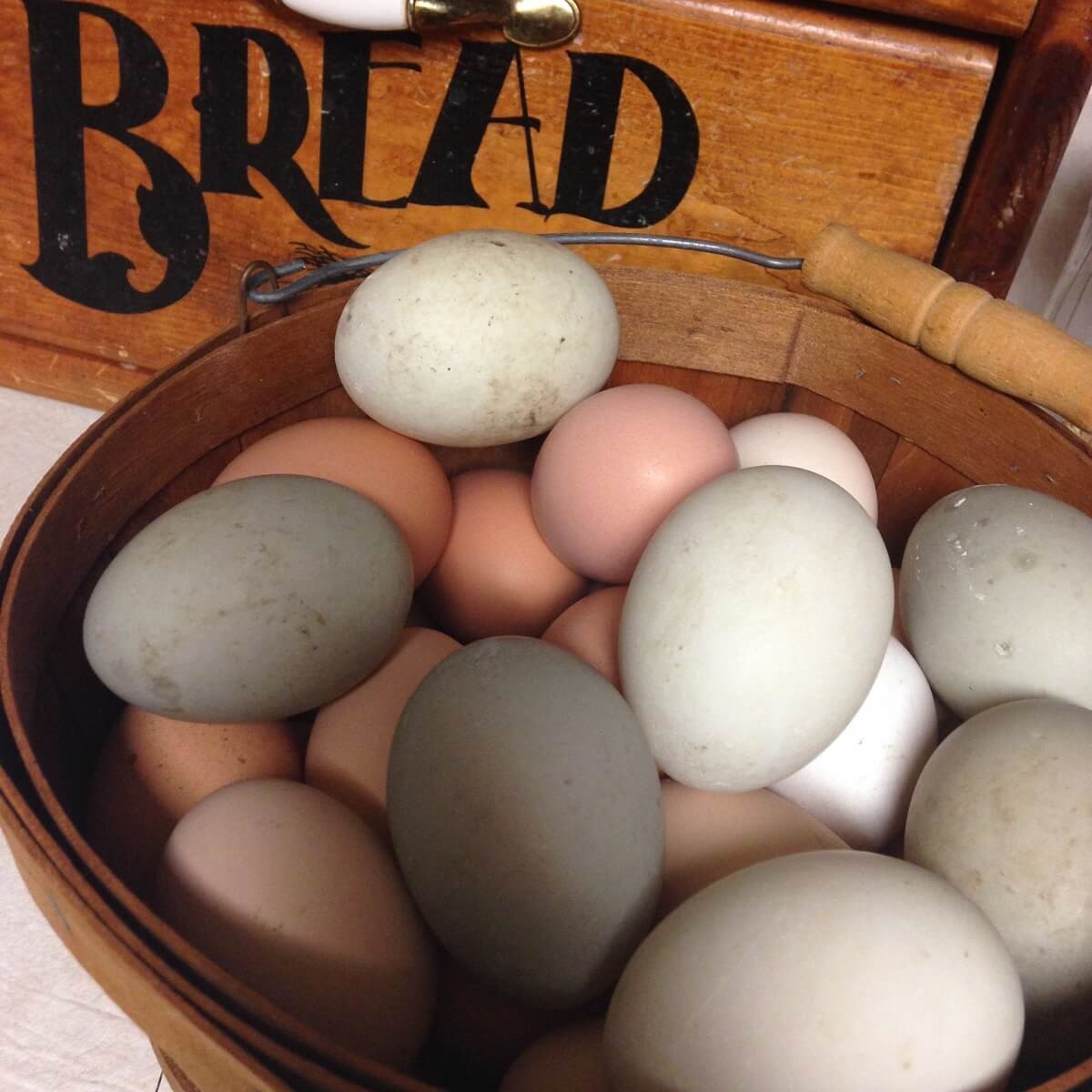


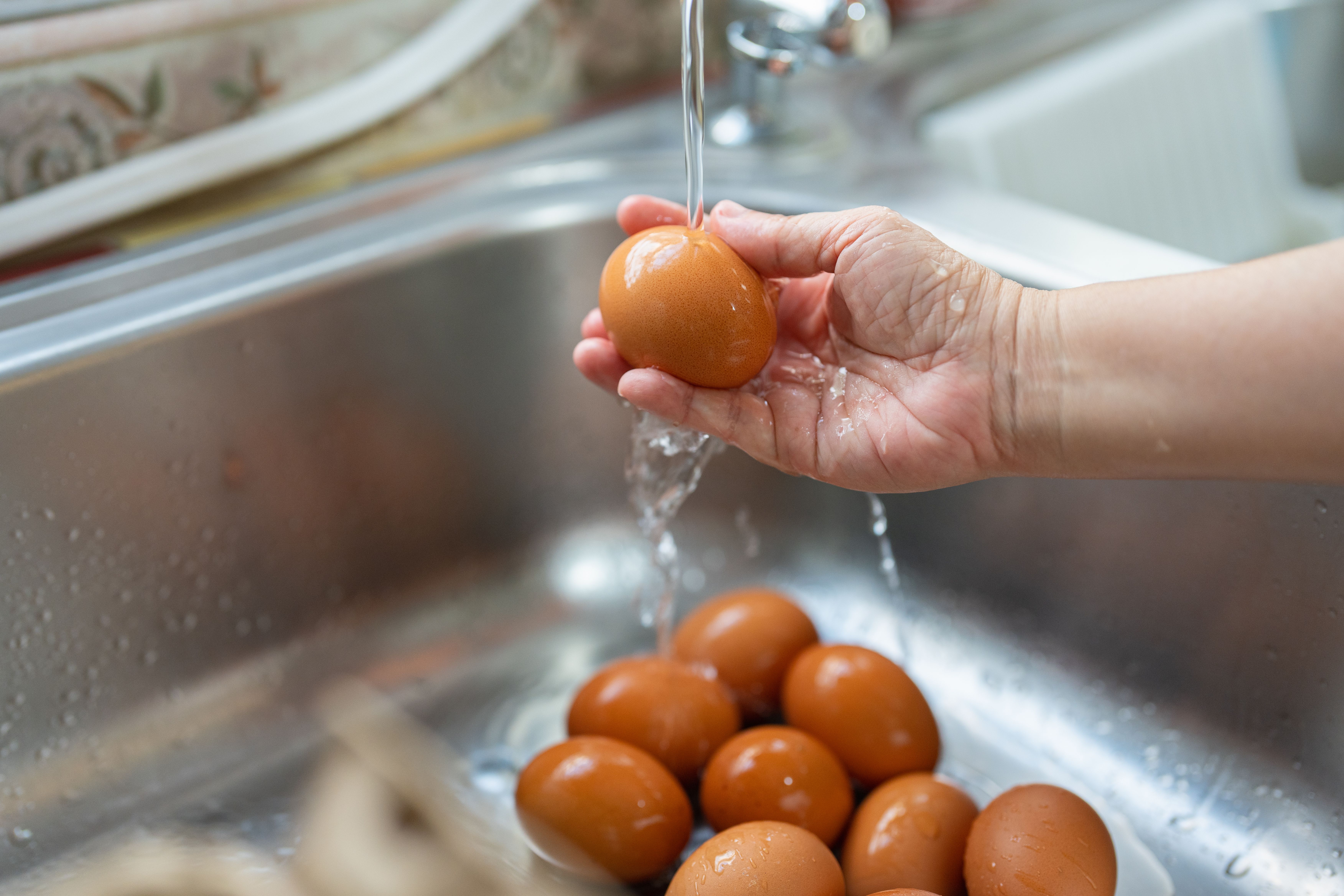
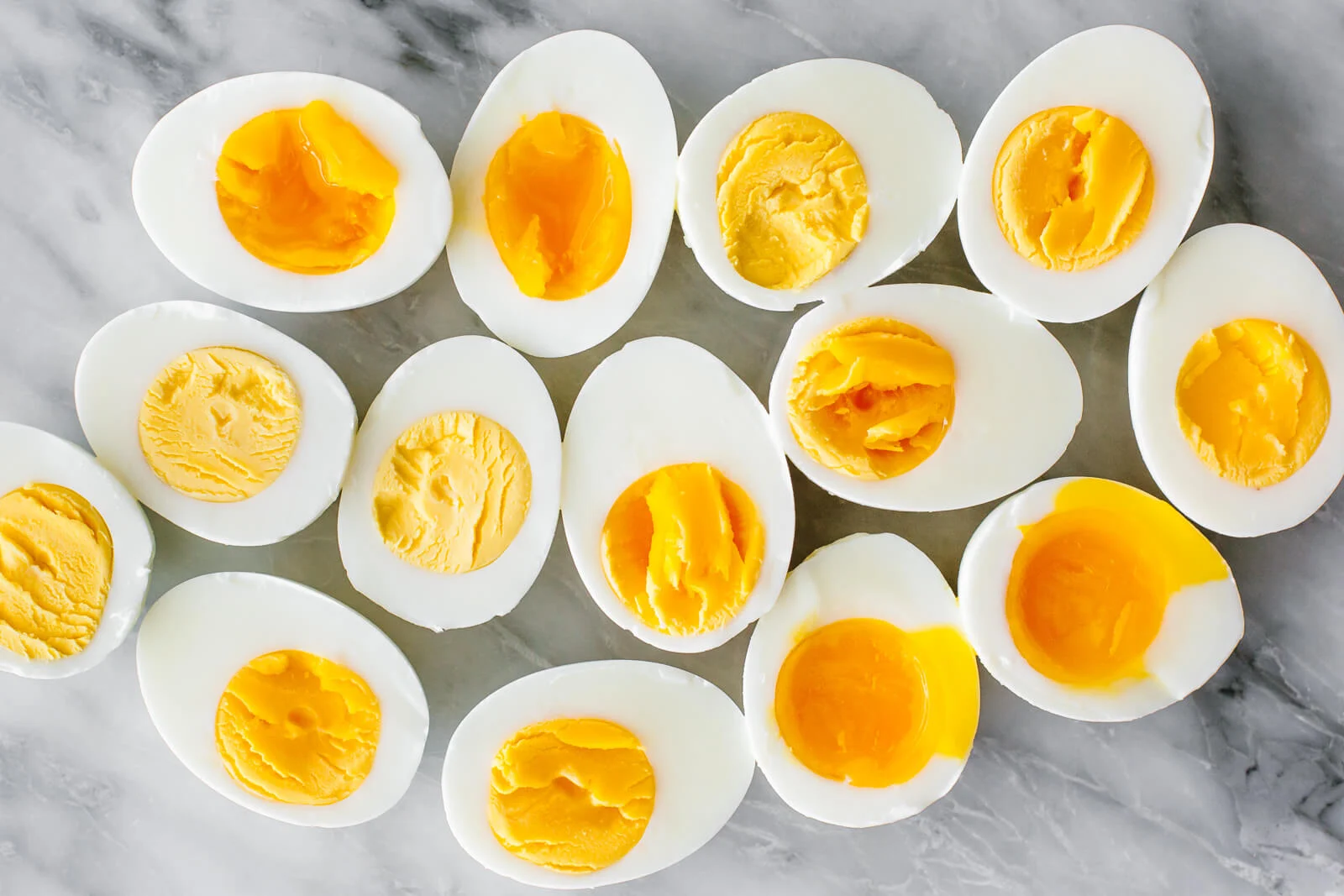
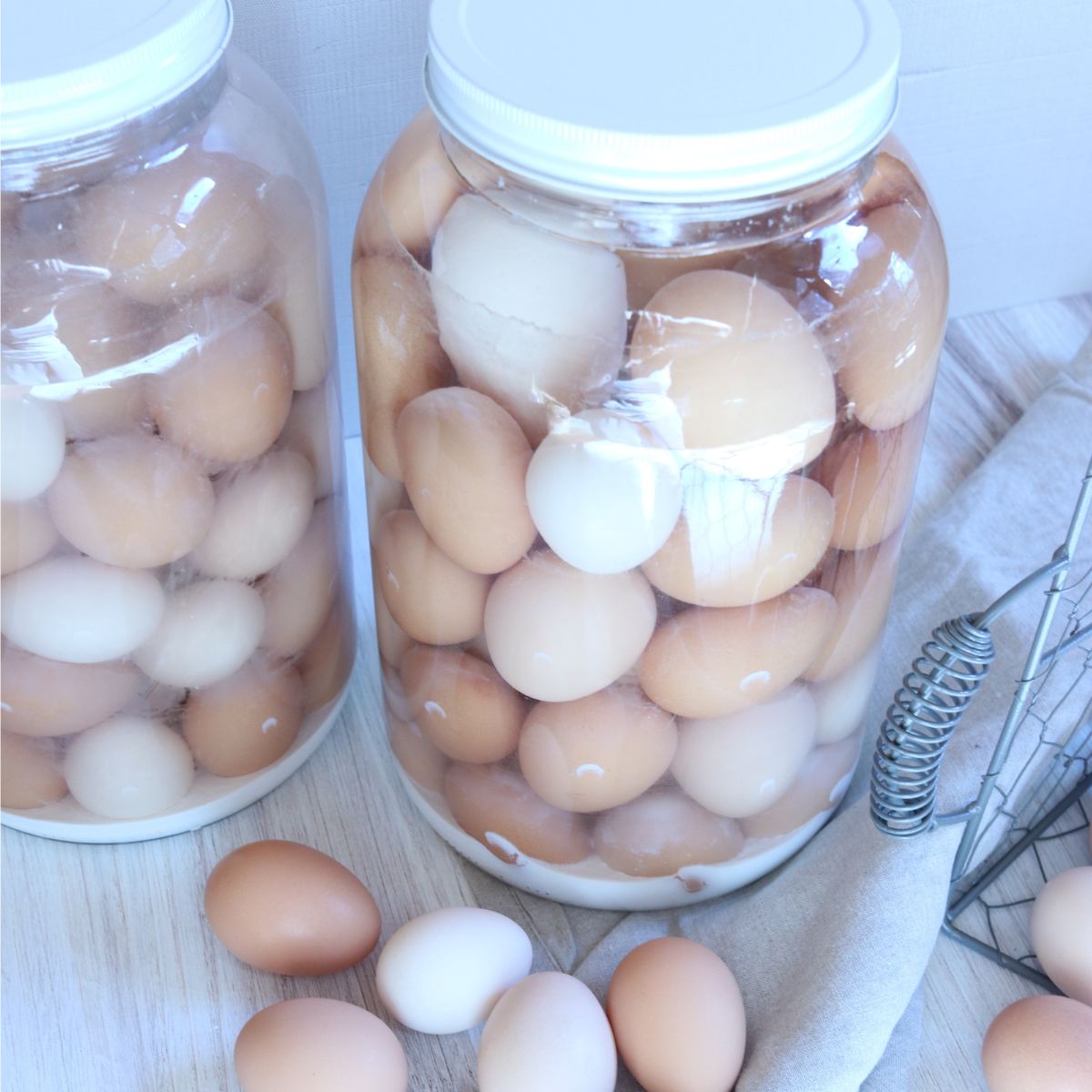

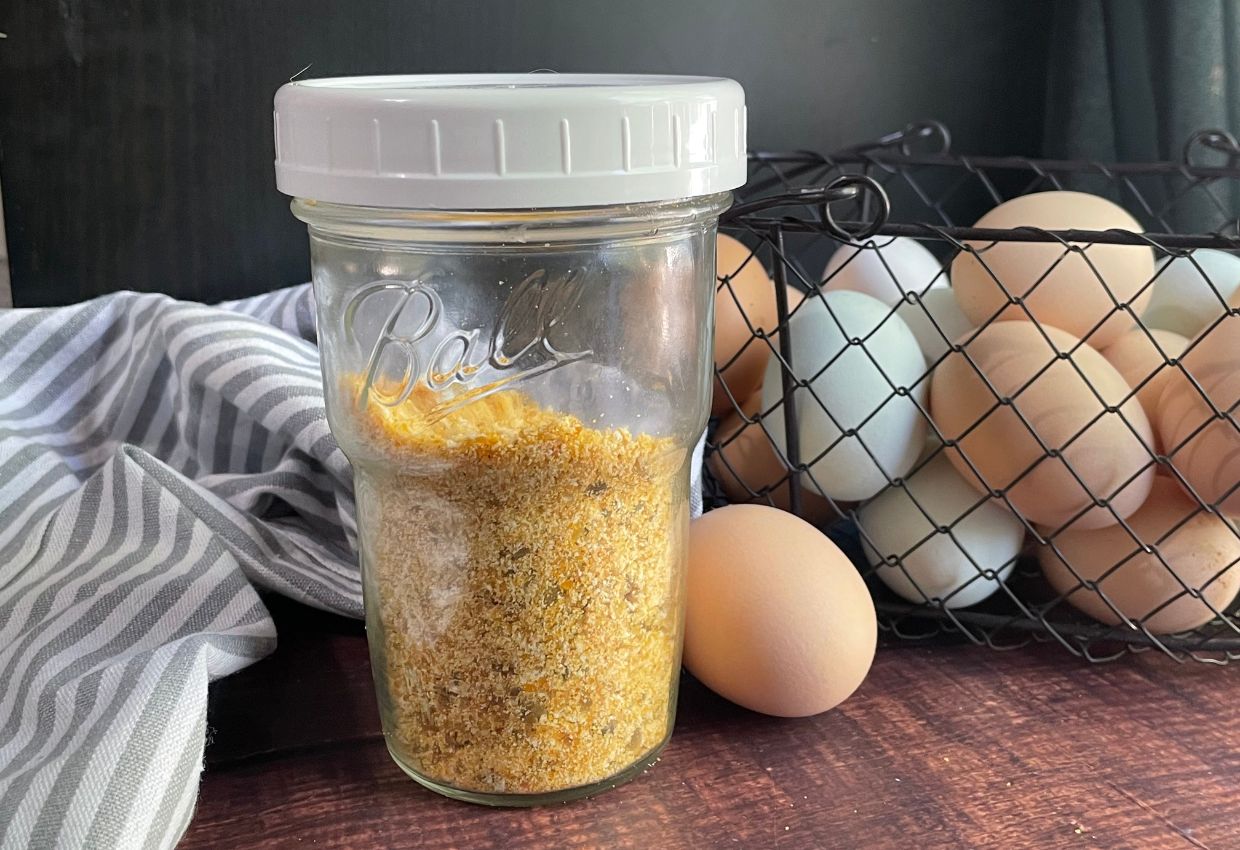

0 thoughts on “How To Store Fresh Eggs”